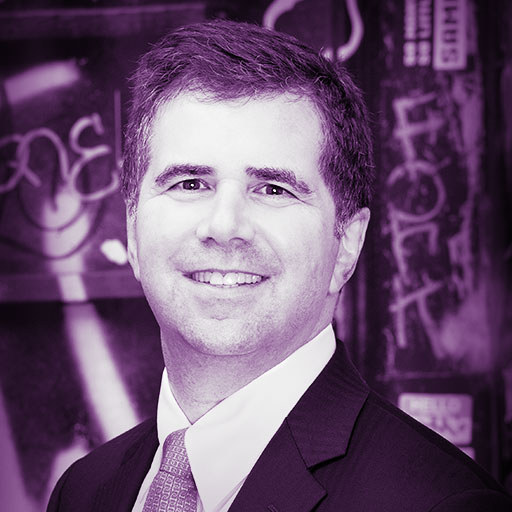Bonus Episode 5: COVID-19 – Update: How Fertility Clinics are Adapting
In this bonus episode, we hear from Dr. Alan Copperman, Medical Director at Progyny, with insights on how fertility clinics have become safer and more efficient than ever before, the impact of telehealth when it comes to the patient and doctor relationship, how the field of reproductive medicine has faced the challenges of the pandemic, and ways in which the current practices can inform the future.
Expert: Dr. Alan Copperman, Progyny and RMA of NY
Host: Dan Bulger
For more information visit Progyny’s Podcast page and Progyny’s Education page for more resources.
Be sure to follow us on Instagram, @ThisisInfertilityPodcast and use the #ThisisInfertility.
Have a question, comment, or want to share your story? Email us at thisisinfertility@progyny.com.
Here are some highlights from this episode:
What the Pause Meant for Fertility Clinics
2:01 – 2:52
Dan Bulger: When the pauses we’ve experienced due to COVID-19 safety measures happened, Dr. Copperman helped lead the charge to find safe and novel ways to help his patients. One big part of that has been telehealth. But here in New York City in June when I spoke with Dr. Copperman, patients were beginning to have more options available to them.
Dr. Copperman: This has really been an unprecedented time for our society, especially in the field of reproductive medicine. We weren’t really prepared for a pandemic and this novel Coronavirus pushed us back on our heels and we paused. We stopped egg retrievals and embryo transfers, and we made a conversion to telehealth. But now here we are, starting to come back. The hospitalization rate is down and the death rate, fortunately, is down and there’s some promise of both prevention and cure. We’ve made accommodations but we’re seeing patients and pregnancies again.
Past Experiences Compared to COVID
4:06 – 5:30
Dr. Copperman: We started practicing here in Manhattan and we opened up RMA in 2001. Then 9/11 happened and it was scary for everybody to come out. Then a year later there was a blackout and we learned to put in place disaster plans because we had to worry about eggs, sperm, incubators, and embryos. And then of course we had Hurricane Sandy when we learned to also have enough diesel fuel to make sure that we can keep the lights on for days should there be difficulty in traversing the streets and getting deliveries of essential equipment, liquid nitrogen, oxygen and anything else that we need. So I think that there are a couple of times in our last two decades that we’ve seen disasters in our society and we’ve had to hunker down and innovate. But this time, I think we all got a little bit scared and we’ve all seen loved ones get sick. I mean, it’s amazing what has happened in the last three months. A naval ship had to come steaming towards New York’s Harbor, and the Javits Center was turned into an infirmary and there was a tent in Central Park for overflow intensive care unit beds because the hospital didn’t have enough. This has been truly unprecedented.
Changes in Office Visits
2:54 – 7:46
Dan Bulger: It’s safe to say that if you experienced a fertility treatment like IUI or IVF in July of 2019, experience this time around, in July of 2020, would be very different.
Dr. Copperman: Everything has changed. For the first visit, we’re offering telehealth consultations. Even before a patient comes in, there are screening questions and when they come in their temperatures are taken, and we’re very precise. It used to be okay to have a half hour in the waiting room or a lot of people waiting to be seen and now we’ve taken out most of the chairs in the waiting rooms, we have text messages that go out to patients when it’s time to come up, we disinfect every single room between procedures, everyone has masks on, and everyone has gloves on. Every care is being taken outside and inside the laboratory. I say that we’ve had a disruption but a good disruption. I think we’re safer and more efficient than ever before.
Dan Bulger: To keep everyone safe, doctors have changed the way they practice medicine. But the key question is, have these safety measures changed things so much that they reduce the success rates of things like IVF?
Dr. Copperman: We all had to learn to do embryo transfers with goggles on and just everything changed a little bit, but it forced us to innovate and pay attention to the details. It was interesting what we just submitted to ASRM. After we came back up from the pause where we stopped cases due to the surge in New York, we looked at our first 100 embryo transfers. And I worried because there’s a lot of anxiety in the air of our embryology team and patients, I worried about all the extra disinfectants that we’re using, and the layers of equipment. The success rate in the post-COVID pause was actually as good if not better than it was beforehand. So, all the innovations fortunately did not compromise the chance of somebody having a successful outcome and I found that to be really reassuring.
Dr. Copperman’s Opinion on Telehealth and Its Future
9:01 – 12:40
Dan Bulger: Large fertility clinics are open and seeing new and existing patients and one thing that’s helped them do so safely is something that we’ve already spoke about today—telehealth. I asked Dr. Copperman to lay out how telehealth is empowering his practice and his patients.
Dr. Copperman: I think telehealth has been this great equalizer. Many of us have done telehealth consults from home in more casual surroundings. I don’t wear a shirt and tie the way I might in an office so it becomes a little more casual and if a patient puts on a fun background, I might mirror them and put on my fun backgrounds too. I’ve got a Simpsons couch instead of my regular couch in the background in my living room. So, it has been more playful. I built a telehealth slide deck, so rather than pointing to something, for example a patient’s ultrasound, on the desk in a real life situation, I’ve created a PowerPoint deck so I can share with the patients what a fibroid looks like, what endometriosis looks like, the normal ovarian aging curve, or the decision support tools to help decide what the right treatment paradigm is. And for follow up visits it’s helpful because we’re looking at the patient’s embryology records in real time together, through screenshare. So, there’s transparency, there’s connection, and it’s casual. It’s comfortable. We’re not across from a desk with a high seat and a lower seat. We’re on the same playing field having a real conversation. I’ve enjoyed communicating with patients and it feels very natural.
Dan Bulger: Telehealth has been a game changer and it’s likely to stick around. Other innovations are also popping up these days that can truly transform the way fertility clinics operate. But Dr. Copperman doesn’t think that this means that the days of in-person interactions with physicians are truly over.
Dr. Copperman: I think we’re all taking a look at what we can learn from this pandemic and what we’ve learned is we don’t need as many in-person visits. And it’s certainly possible that within the next few years we’ll have salivary estrogen levels so somebody doesn’t have to come in for a blood draw. People are toying around with the idea of even home ultrasounds so we can see the ovaries transmitted wirelessly and use the information to make day to day monitoring decisions. So I think that we can hopefully innovate and have fewer office visits, but I do think that there will always be a place for the in-person encounter and the procedures being done in a centralized fashion with the high tech laboratory capable of achieving good results reliably.

Host
Dan has been in the healthcare industry for the last six years as a multimedia content producer. Better known as ‘Video Dan’ he as interviewed numerous doctors, patients and other experts in the world of fertility. He’s also the producer for this podcast, This is Infertility. On a personal note Dan’s parents started fostering kids when he was four years old, and he considers himself a proud older brother to over 100 foster children.

Guest
Dr. Alan Copperman is a board-certified reproductive endocrinologist and infertility specialist with a long history of success in treating infertility and applying fertility preservation technologies. He serves as Medical Director of Progyny, a leading fertility benefits management company, and co-founded and serves as Medical Director of RMA of New York, one of the largest and most prestigious IVF centers in the country. Dr. Copperman is also the Vice Chairman and Director of Infertility for the Icahn School of Medicine at Mount Sinai, and Chief Medical Officer of Sema4, a health information company. Dr. Copperman has been named to New York magazine’s list of Best Doctors 18 years in a row. He has been recognized by his peers and patient advocacy organizations for his commitment to patient-focused and data-driven care. He has published more than 100 original manuscripts and book chapters on reproductive medicine and has co-authored over 400 scientific abstracts on infertility, in vitro fertilization, egg freezing, ovum donation, and reproductive genetics.
Music From This Episode:
Artist: Lee Rosevere
Track: All the Answers
URL: https://freemusicarchive.org/
Track: Sad Marimba Planet
URL: https://freemusicarchive.org/
Track: Small Steps
URL: https://freemusicarchive.org/



